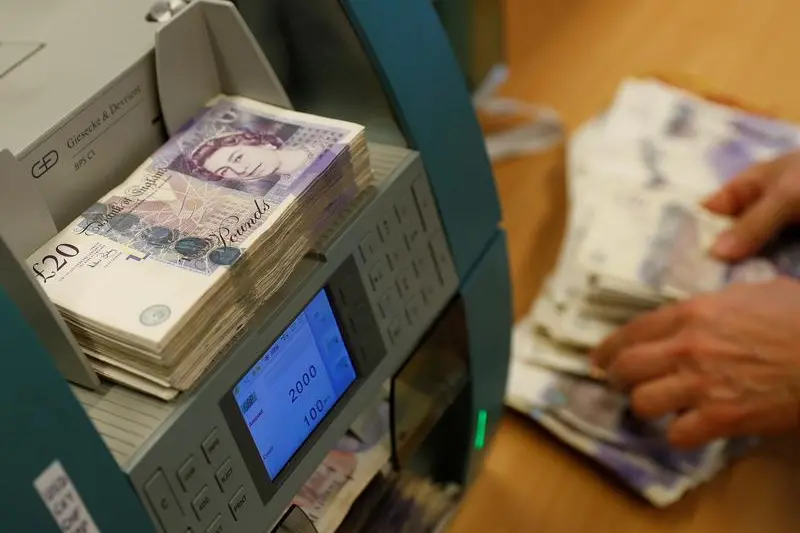PHOTO
LONDON - Sterling dropped to its weakest since March 2017 on Monday, amid concern that Britain was headed for a disorderly exit from the European Union.
Senior ministers said on Sunday that new Prime Minister Boris Johnson's government was working on the assumption that the EU would not renegotiate its Brexit deal, so it was ramping up preparations to leave without a deal on Oct. 31.
In a sign that investors are scrambling for protection against more swings in the currency around the time of Britain's expected departure date, sterling three-month implied volatility surged to a four-month high of 10.10 vol.
Hedge funds have increased their net short sterling positions to $6.11 billion in the week to July 23, the highest amount of shorts in nearly a year.
The pound dropped 0.4% to $1.2325, the lowest it's been since March 2017. It was also 0.3% lower against the euro, touching 90.15 pence, below the key psychological level of 90.
"The market is now increasingly concerned about hard Brexit being a possibility," said Esther Maria Reichelt, an analyst at Commerzbank.
While traders are dumping sterling, analysts say the currency does not yet fully price in a no-deal Brexit.
"Nobody dares to bet on aggressive views," Reichelt said, adding that if they decide to do so, sterling would move "in big steps."
Some banks have forecast the pound would fall towards parity against both the euro and the dollar should a no-deal Brexit come to pass.
(Reporting by Olga Cotaga; additional reporting by Tommy Reggiori Wilkes; editing by Larry king) ((olga.cotaga@thomsonreuters.com))





















